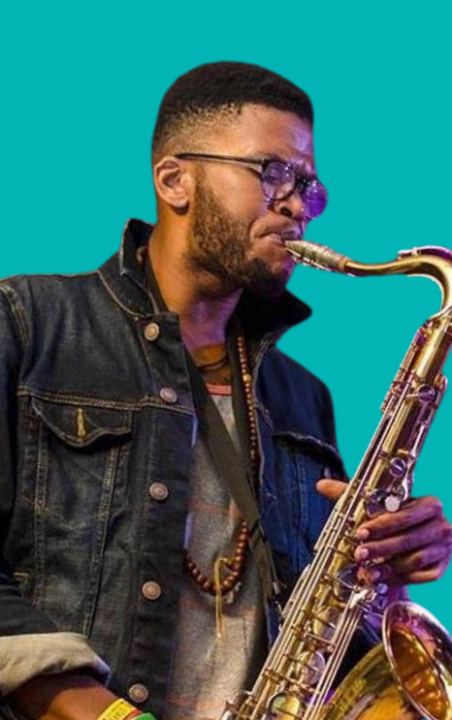The concept of oneness occupies a central position in Bahá’í teachings, asserting a profound interconnectedness among humanity. This principle resonates harmoniously with the rich traditions of jazz music, a genre that embodies freedom, improvisation, and collaboration. In a recent discussion with Mtali Shaka Banda, a prominent figure in the jazz world, we explore the nexus between the universality intrinsic to Bahá’í principles and the collective spirit of jazz. Through this dialogue, we delve into how jazz not only serves as an artistic expression but also acts as a vehicle for promoting unity and understanding among diverse peoples.
The joyous cacophony of a jazz ensemble brings to mind an important question: How can the spontaneous and improvisational nature of jazz facilitate a deeper sense of oneness among listeners? The answer may lie in the very essence of jazz music itself. Every note played in a jazz composition is both an individual expression and a contribution to a greater, collective whole. Just as each musician’s unique style amalgamates to create a harmonious sound, individuals from varied backgrounds can unite in their shared humanity, enhancing societal cohesion. Through conversations with Banda, the notion of jazz as a harmonious microcosm of global unity becomes ever clearer.
The improvisational aspect of jazz is particularly noteworthy. Musicians often engage in a dialogue through their instruments, leading to a dynamic and fluid exchange of ideas. This mirrors the Bahá’í view of the importance of consultation and collaboration—essential elements for promoting unity and understanding. In jazz, one must listen intently to others while simultaneously expressing personal creativity. Such a multifaceted interaction fosters an environment where acceptance and respect are paramount. Through Banda’s experiences, we see firsthand how this musical dialogue cultivates fellowship and diminishes barriers between individuals.
Moreover, jazz is replete with stories that reflect varying cultural dimensions. The genre arose predominantly from African American communities, yet it has expanded globally, absorbing influences from numerous traditions. This cultural amalgamation serves as an embodiment of the Bahá’í principle of the oneness of humanity, where diversity is celebrated rather than shunned. Banda articulates the notion that every jazz performance is an invitation to participate in this larger narrative, a movement toward inclusivity and shared experience. In this regard, jazz transcends mere entertainment; it can be a transformative experience that opens doors to understanding and empathy.
However, the challenge lies in the question: Can a musical genre truly catalyze social transformation? Critics may argue that while jazz offers a forum for creative expression and cultural exchange, the outcomes of such interactions may remain superficial. Banda acknowledges this skepticism but counters that the transformative potential of jazz exists in its ability to touch the human soul, creating emotional resonance that fosters deeper connections. Just as Bahá’í teachings advocate for the recognition of our interdependence, so too does jazz demand recognition of shared experience. The music prompts listeners to confront their own biases and preconceptions, often leading to profound personal growth and mutual respect.
Social institutions have increasingly recognized the power of jazz as a tool for fostering unity and enhancing cultural dialogue. Educational programs that incorporate jazz into their curricula aim to stimulate creativity and collaboration among students from diverse backgrounds. Such initiatives not only celebrate musical heritage but also underline the importance of understanding varied perspectives. Banda believes that these efforts mirror the essential teachings of the Bahá’í Faith, where education serves as a catalyst for unity and enlightenment.
The intersection of jazz and Bahá’í principles invites contemplation on how music can advocate for social justice and equality. For instance, historical contexts reveal that jazz has often been a voice for the marginalized and disenfranchised. Through the rhythms of jazz, individuals have articulated resistance against oppression and sought to elevate consciousness about societal injustices. This aligns beautifully with Bahá’í principles that emphasize the importance of justice as a means to achieving unity. Through his own compositions and collaborations, Banda exemplifies this commitment to creating art that not only entertains but also inspires action towards a more equitable world.
As we traverse the landscape of oneness in jazz, we must not overlook the role of spirituality in this musical journey. The intimate connection many jazz musicians feel to their craft often transcends the physical act of performance. Banda eloquently expresses that jazz emerges from a spiritual place, imbued with intentions that seek to bridge divides. Herein lies the synergy between jazz and the Bahá’í Faith; both encourage individuals to access their innate potential for creativity and ingenuity as vehicles for fostering compassion and empathy.
In conclusion, the dialogue between Mtali Shaka Banda and the tenets of Bahá’í teachings brings to the fore a compelling exploration of oneness through jazz. The interplay of improvisation, cultural celebration, and profound emotional engagement in jazz provides a framework for nurturing connection and unity among diverse communities. The challenge remains to harness this potential not just within musical confines, but as a transformative force in society at large. As jazz continues to evolve, it will undoubtedly remain a vital conduit for dialogue, understanding, and ultimately, the quest for unity in humanity—a symphonic celebration of the principle of oneness.
